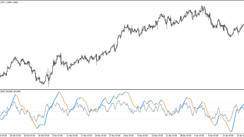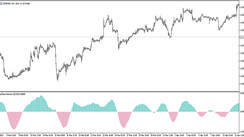After making a decision to journey into the world of trading, the time expended to work on it should be the next thing to consider. How much time you can set aside for trading would be dependent on your daily routine, family obligations, as well as hobbies and interests. Unveiling the different kinds of trading time commitments, we discover the following:
Day Trading: A Full-Time Affair
This is a trading setting that requires your thorough dedication to the stock market from opening to close time; 9:30 AM to 4:00 PM ET. This form of trading is quite demanding, but it can equally be the most profitable if properly managed. This type of trader must have an accurate understanding of the market indexes and be willing to execute timely trades amidst constant supervision of the market.
Swing Trading: A Balancing Act
This midway type of trading permits you to commit a few hours daily to evaluate the markets and pinpoint viable opportunities. Within this method, stocks are held for several days or even weeks, reducing the necessity for incessant market vigilance. Nevertheless, Swing traders should stay updated with market happenings and be ready to realign their trades when required.
Position Trading: The Marathon Approach
Considered as the least time-demanding trading approach, Position traders can maintain stock positions for extended periods, ranging from months to years. As they don't need to keep eyes glued to the market, they however need to have excellent knowledge of trend-moving factors and be well-oriented in identifying long range investment prospects. The returns could be lower, but this doesn’t mean profitability is impossible yet.
Effects of Time Commitment on Trading
Your trading strategy and potential gains would be largely dependent on the amount of time you can make available for trading. Day traders stand the best chance of generating the most significant returns but are also faced with a higher risk. Those leaning towards Swing or Position trading would have a lower risk despite having lesser returns. Start-up traders are advised to take on Swing trading or Position trading roles. This would afford them the chance to grasp the concept of the markets and design a successful trading strategy before venturing into the more demanding Day trading.
Choosing an Appropriate Time Commitment
Your choice of timing will be tailored to your life happenings and your risk-bearing capability. For instance, those with a full-time job and family commitments may not be able to fully invest their time on Day trading. Swing or Position trading could be an alternative. For novices, the goal should be to pick the trading strategy that aligns with their lifestyle and allows them ample time for other activities.
Expert Recommendations
Experts emphasize the importance of mastering the markets and perfecting effective trading strategies before venturing into the more demanding Day trading. They also suggest picking a trading depth that aligns with your other responsibilities. Attempting to hard-push the time you can dedicate to trading could result in you getting overwhelmed and possibly quitting.
Some tips to put in mind when selecting a suitable commitment period include understanding the capacity of your lifestyle and time allotment for trading, your risk limit, and the realization that the more you engage in Day trading, the more the risk you are exposed to.





